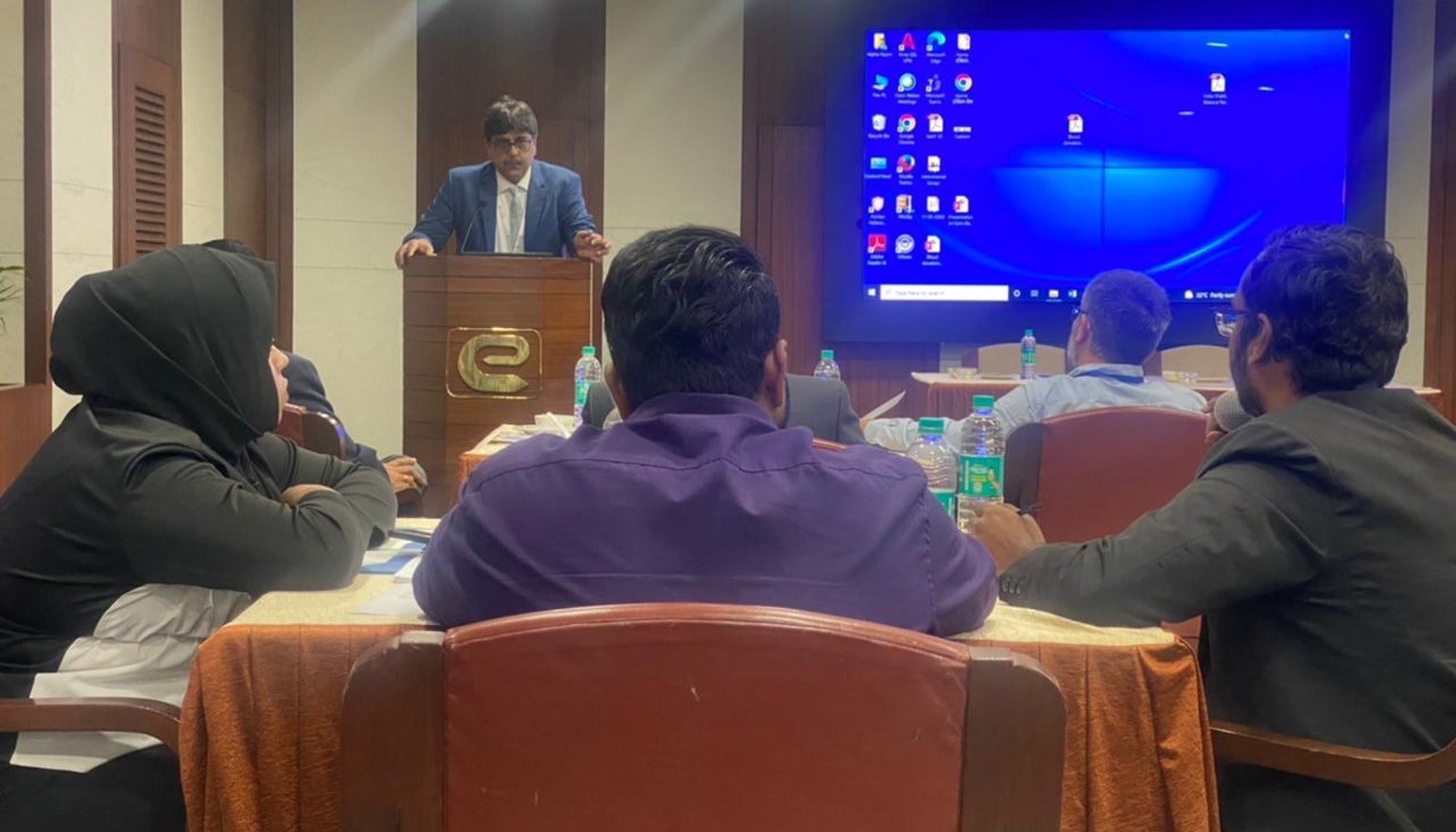Mumbai, India – Indian owned Exim bank – which has extended billions of dollars of the Maldives as part of it’s line of credit – has expressed confidence in the economic trajectory of island nation has said that developmental projects need not be ceased in the country.
Contrary to the warnings by CEO of Bank of Maldives (BML) Timothy Sawyer and U.S. investment bank JPMorgan which sounded alarm bells regarding a possible upcoming “winter” for Maldives’ economy as recent as the past couple of weeks, the General Manager of Exim Bank Nirmit Ved expressed no concerns regarding the country’s economic situation and went on to say that there is no reason the country should stop its developmental projects.
Speaking with Maldivian journalists who traveled to India on a familiarisation trip last week, Ved explained the bank’s stance by detailing that the country’s tourism industry and foreign currency generation capacity has now reverted to pre-pandemic momentum, due to which the current development projects will diversify the economy and yield a favourable return for Maldives.
Inflated prices of goods resulting in high import costs is an issue faced by all countries globally, said Ved. He detailed that is no country not facing this situation, but that based on the information provided by the Maldivian Ministers and the bank’s own investigation, there is no unfavourable situation in Maldives.
Defending the ongoing projects funded by the bank through it’s line of credit extended to the Maldives such as the MVR 252.1 million cricket stadium in Hulhumalé which has met with a great deal of disapproval from critics, Exim Bank reasoned that the stadium will open doors for Maldives to promote itself as a sports venue destination. Ved explained that although Maldives may not think much of cricket, its popularity in India is ever so high and that Maldives could benefit from big league games being held there.
IPL league matches are not played in India alone, said Ved. Explaining that the league’s matches are played in many countries that do not play cricket, he added that if the matches are held in Maldives, it would direct so many inbound spectators to the country.
Ved also highlighted that projects are in fact finalised by the Maldivian government and that the bank has no role in these decisions, except that of providing the country with loans to execute the projects.
Ved said that the bank is participating in the infrastructural development of Maldives, and that these projects with help Maldivians. He further added that the bank is assisting in major projects that are currently important for the country. There is no alternative intention, he said.
When inquired on how the bank would take action if Maldives succumbs to an economic crisis such as neighbouring Sri Lanka and defaults on it’s loan repayment, Ved reassured that the bank will remain in support of Maldives even in tough times and that the bank is assisting Maldives with the vision that the development of neighbouring countries is also the development of India.
As such he reassured that should a situation arise where debt restructuring is required, such leniency will be extended.
Even in this situation the bank is increasing assistance provided to Sri Lanka, Ved clarified, adding that it is especially extending the line of credit for procurement of basic essentials. Similarly, we will maintain our assistance to Maldives in any situation, he reassured.
Ved also commended the ease in communication between government officials of Maldives and the Bank when inquired about the pace of on going projects, adding that the bank is satisfied with the pace at which projects are progressing. However, he added that the bank will take necessary action should any undue delay arise, highlighting that the bank ensures projects are awarded to capable parties.
So far Exim Bank has disbursed USD 133 million (MVR 2.1 billion) out of the agreed upon USD 1.4 billion. The bank’s loans to the Maldives comes at an interest rate of 1.75%, inclusive of 1.5% LIBOR. Repayment of each loan must commence after a period of five years from the initial issuing of funds, and the repayment period is marked as 20 years. The free aid amount of these loans amount to 31.37% of the total loans.





